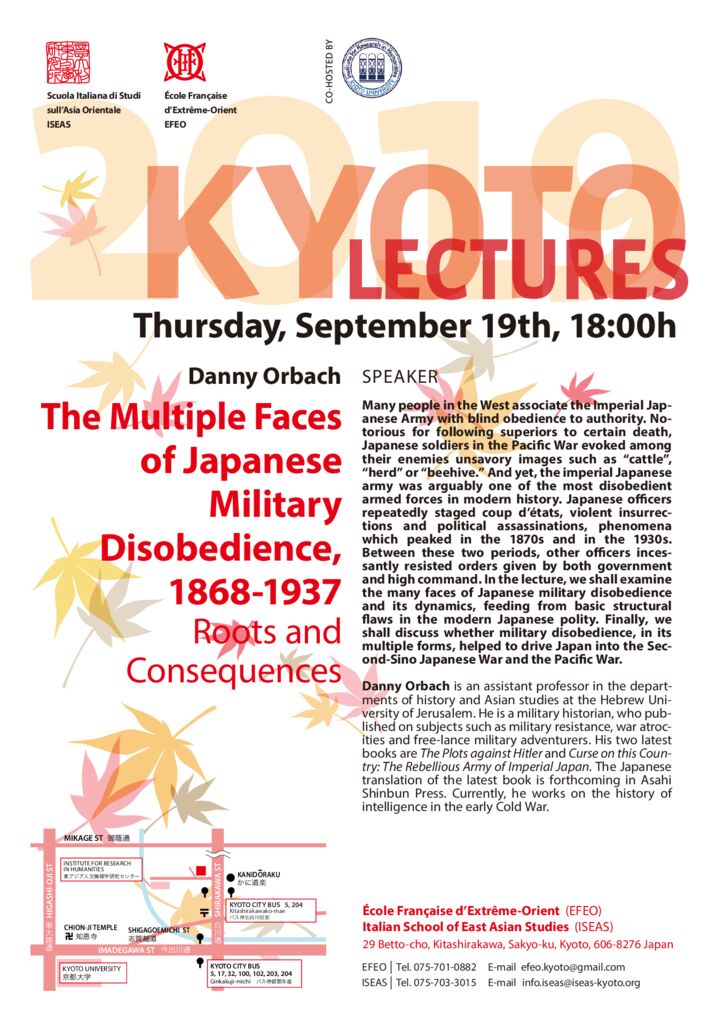Many people in the West associate the Imperial Japanese Army with blind obedience to authority. Notorious for following superiors to certain death, Japanese soldiers in the Pacic War evoked among their enemies unsavory images such as “cattle”, “herd” or “beehive.” And yet, the imperial Japanese army was arguably one of the most disobedient armed forces in modern history. Japanese ocers repeatedly staged coup d’états, violent insurrections and political assassinations, phenomena which peaked in the 1870s and in the 1930s.
Between these two periods, other ocers incessantly resisted orders given by both government and high command. In the lecture, we shall examine the many faces of Japanese military disobedience and its dynamics, feeding from basic structural aws in the modern Japanese polity. Finally, we shall discuss whether military disobedience, in its multiple forms, helped to drive Japan into the Second-Sino Japanese War and the Pacic War.
Danny Orbach is an assistant professor in the departments of history and Asian studies at the Hebrew University of Jerusalem. He is a military historian, who published on subjects such as military resistance, war atrocities and free-lance military adventurers. His two latest books are The Plots against Hitler and Curse on this Country: The Rebellious Army of Imperial Japan. The Japanese translation of the latest book is forthcoming in Asahi Shinbun Press. Currently, he works on the history of intelligence in the early Cold War.
